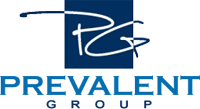- Create a master keyword list – You will notice throughout your job search that the same keywords show up in postings again and again. Keep a list of those keywords, especially those that are specific to your field. Be sure that your resume includes all of these recurring terms.
- Read each job posting carefully – While you will spot trends in job postings, each listing is unique. Be sure that your resume includes keywords from the individual posting that seem important. Words that show up more than once in a list of desired skills and qualifications should definitely be included in your resume.
- Don’t lie – Though the object is to match your resume to the posting as closely as possible, lying will only hurt you in the long run. Hiring managers understand that not every qualified candidate will have all of their desired skills, so do your best to match your resume to the posting, but don’t falsify your qualifications.
- Beef up your first page – Many hiring managers save time by setting parameters in their ATS to scan just the first page of a resume. Focus most of your attention here.
- State the company name in your objective – Some hiring managers will award “bonus” points in the scoring system for resumes that include the name of the organization.
- Create two versions of your resume – It might be useful to create a resume that is designed specifically for the digital scanner, and keep a longer version that you can send to the hiring team if you’re contacted for an interview. The objective of optimizing your resume for an ATS is to get to that first point of contact. From there, you can utilize your meatier resume to help make your case throughout the hiring process.
How to Successfully Highlight Your Resume in a Digital Scanner
Digital scanners are a new trend in human resources software. Also called applicant tracking systems (ATS), these computer programs scan all incoming resumes for a specific set of predetermined keywords, scoring each resume based upon the number of keyword matches it finds. Resumes that don’t include enough keywords will be automatically kicked out of the system, while those that have many matches are sent on for personal review.
Digital ATS systems are designed to make life easier for HR departments, which are often stretched to the limit. However, qualified candidates who submit a resume that is not optimized can be eliminated before human eyes ever have a chance to see their resume.
In order to have the best chance of passing the scan, here are some tips to follow:
